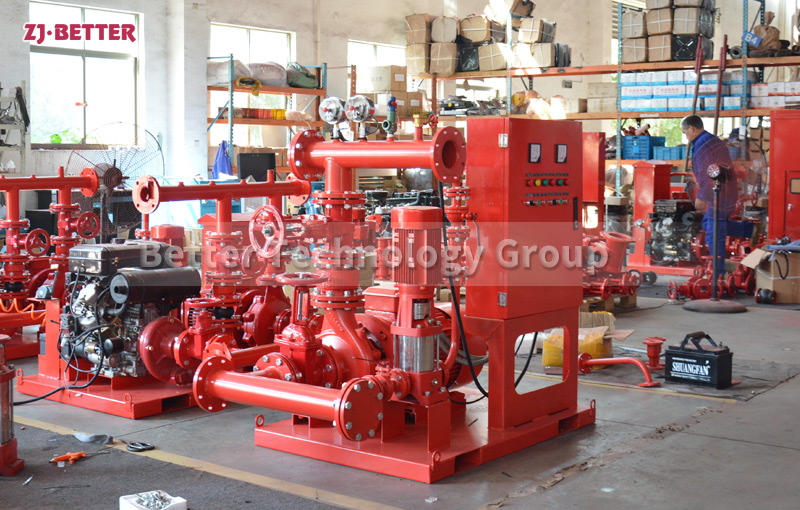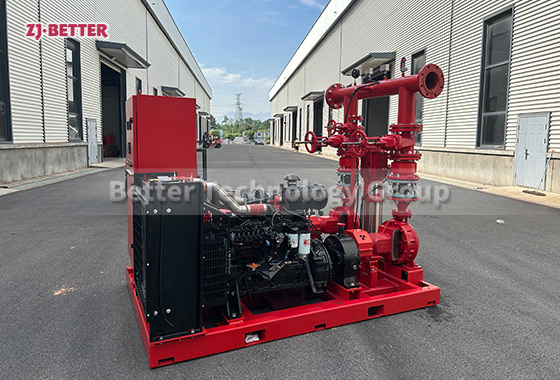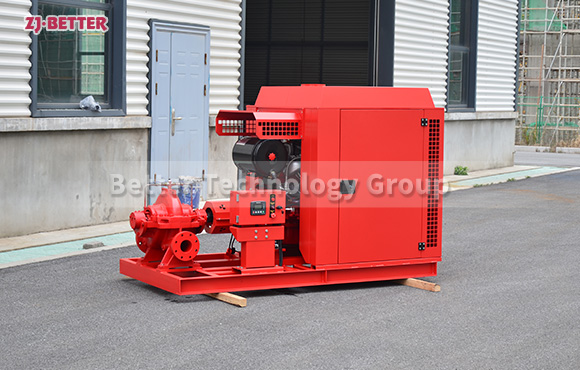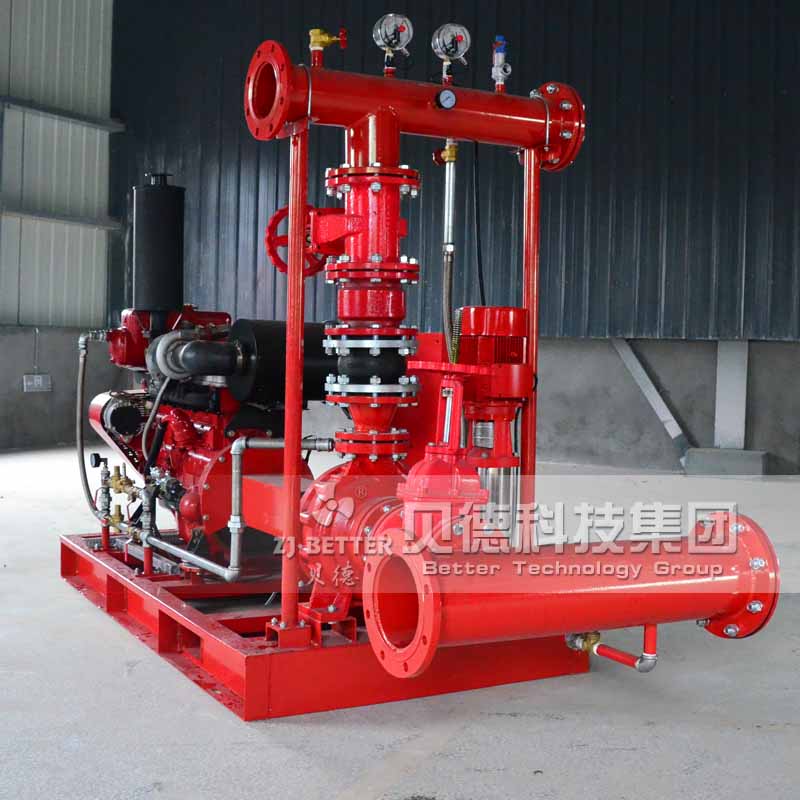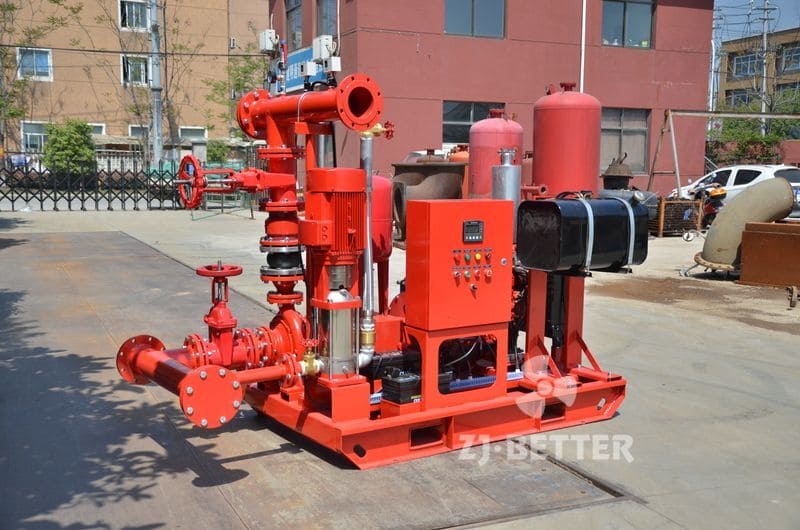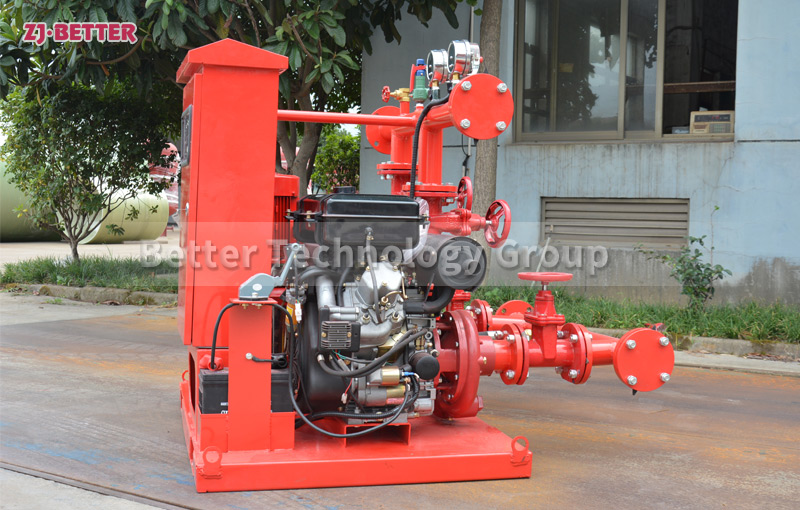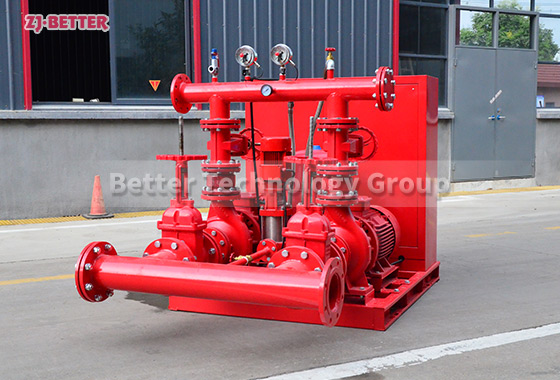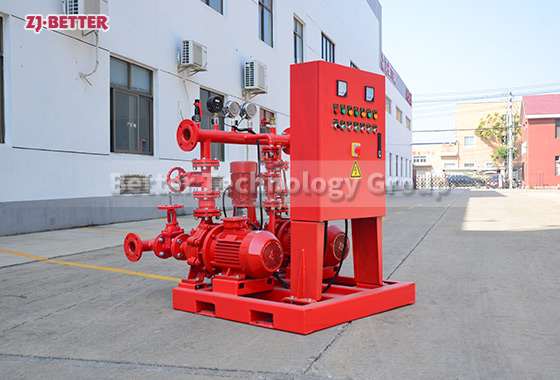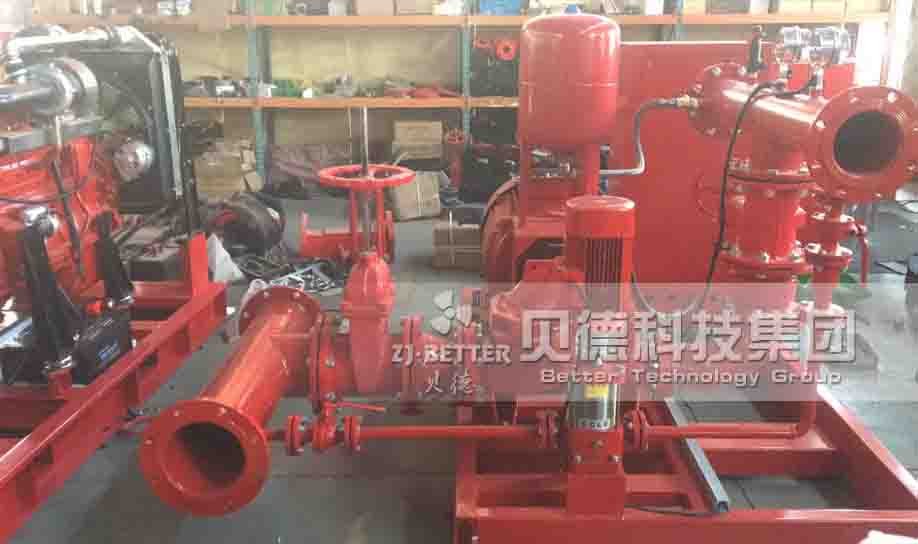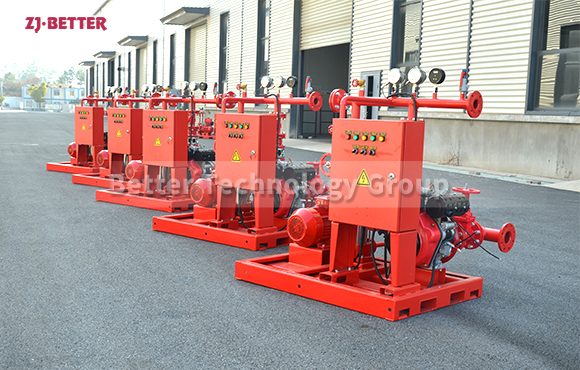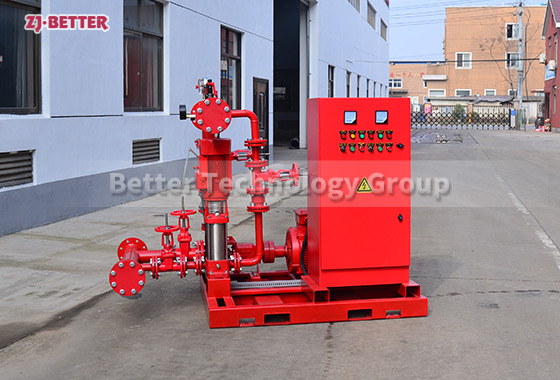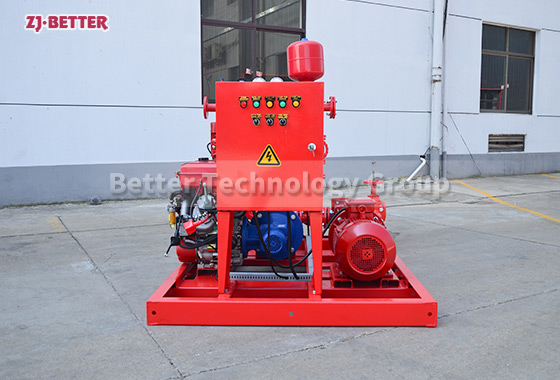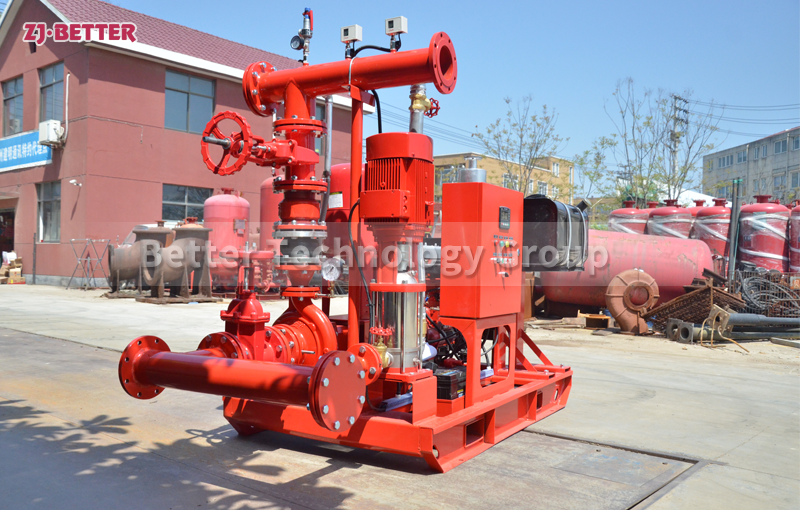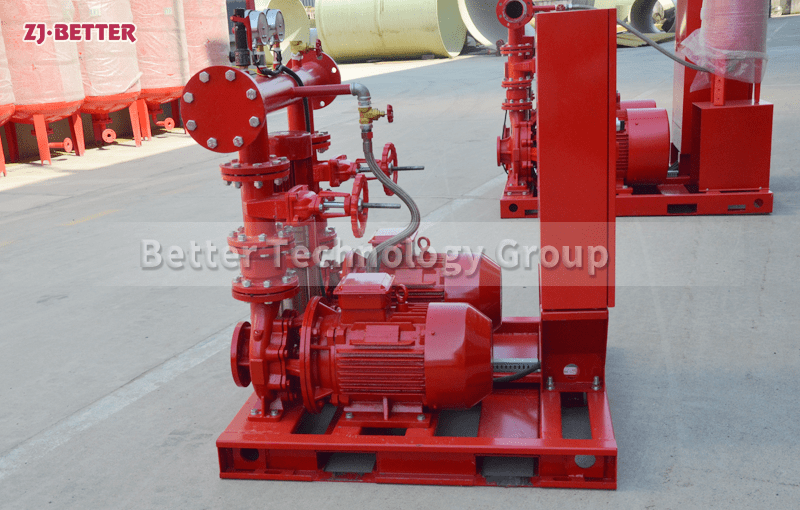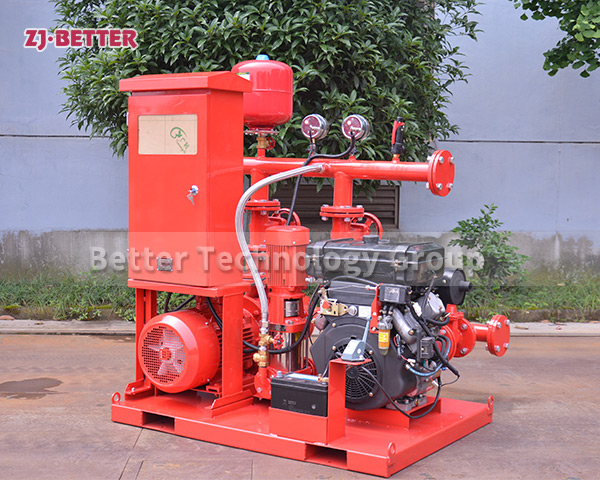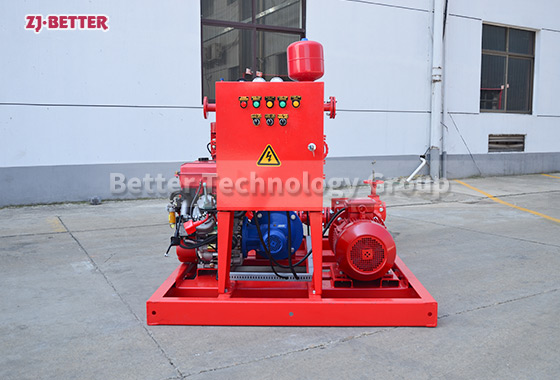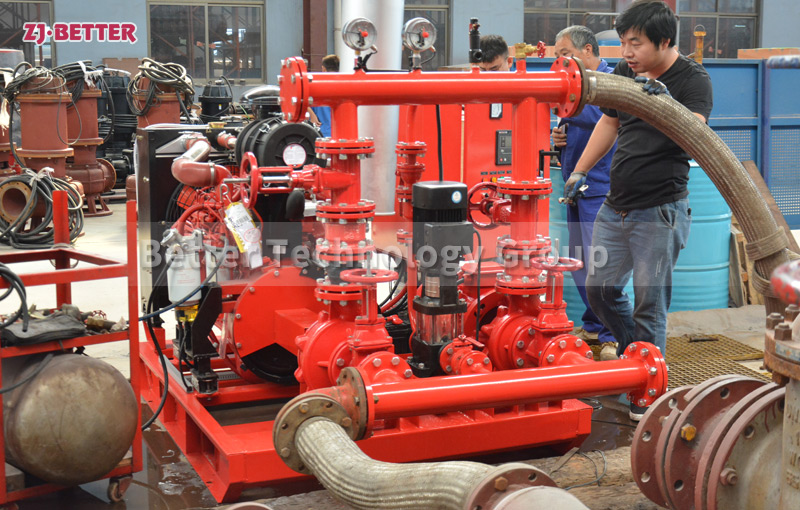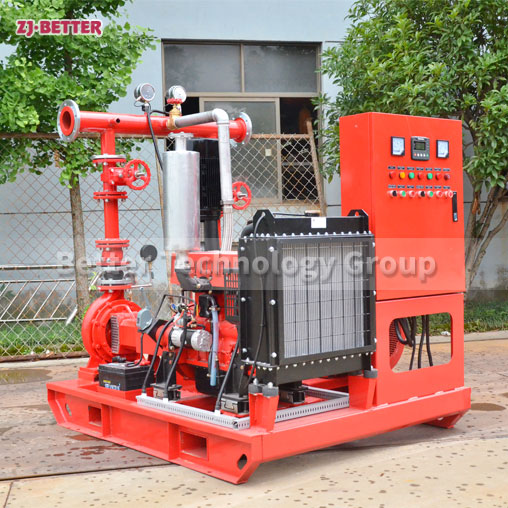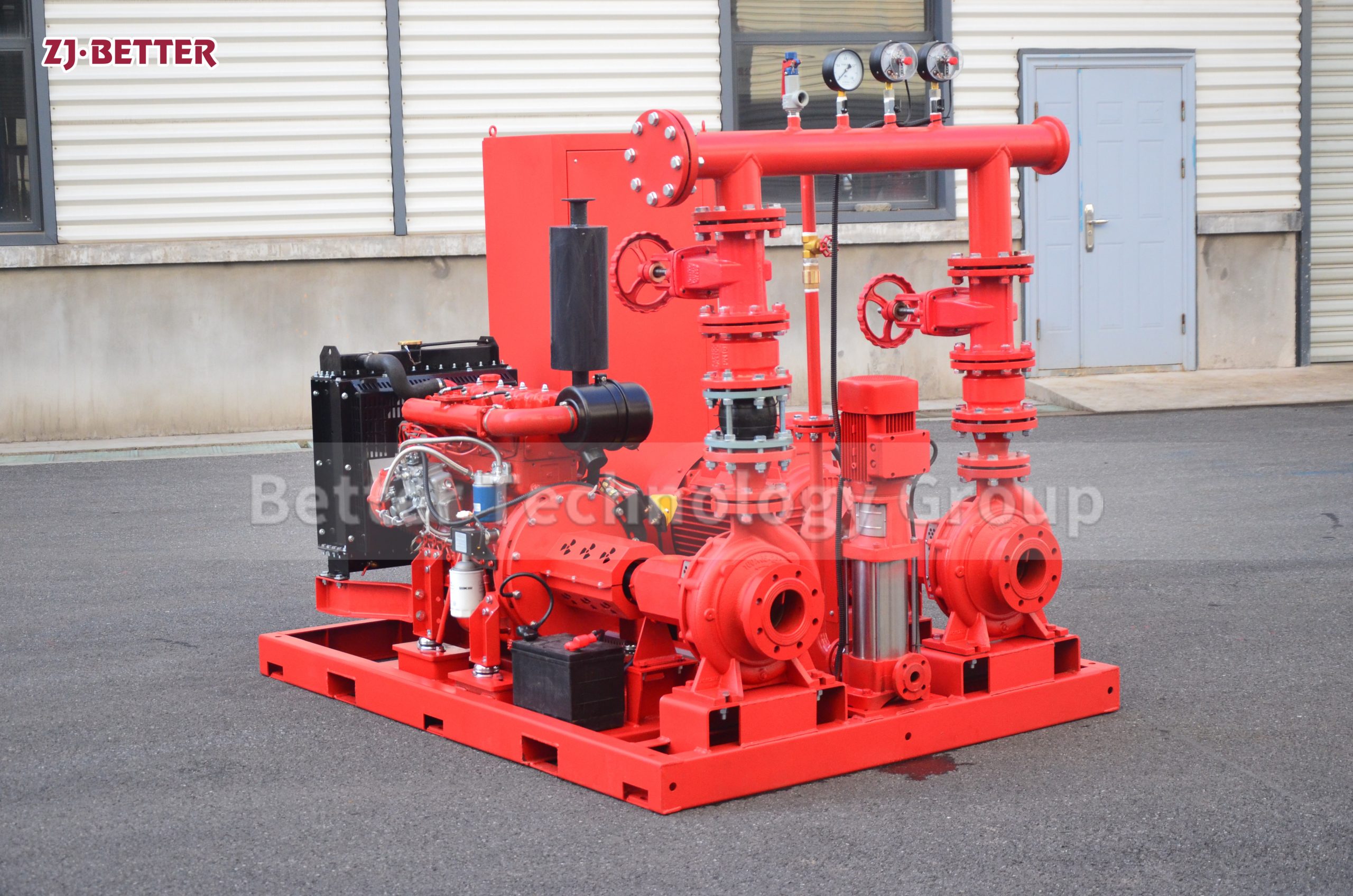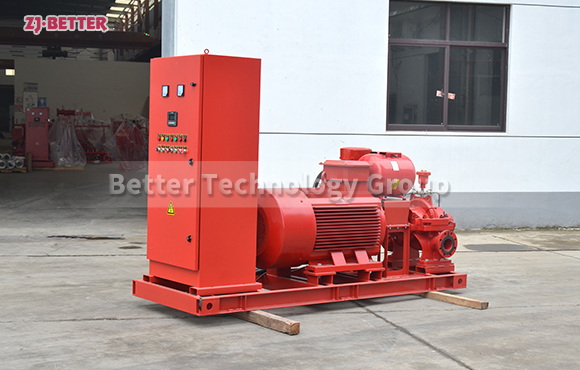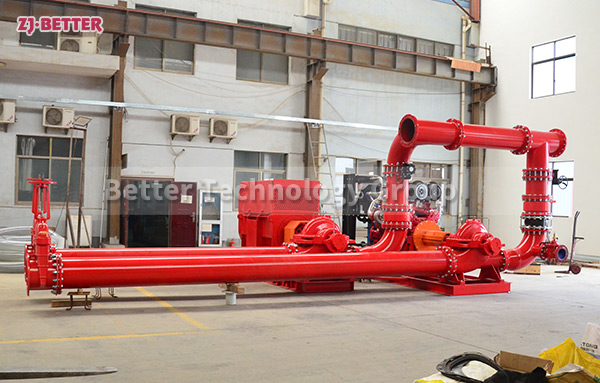Diesel electric fire pump set with automatic start after power failure
Diesel fire pumps are generally used as backup equipment, and will only start automatically when the fire signal arrives, the electric pump fails or the power is cut off. After the ultra-low pressure starting device is equipped, the matching electric water pump control cabinet should also be equipped with an ultra-low pressure starting device, and the pressure difference between the two should be the lower limit. This series of products has a large range of lift and flow, which can fully meet the needs of the dock , warehouse, liquefied gas station, petrochemical, airport, power plant, textile and other industrial and mining enterprises fire water supply.
Three starting functions:
1. Manual start function: through the changeover switch, the manual and every movement interlock can be completed, and the manual start function can be completed;
2. Automatic starting function: It is allowed to start three times. If the three starts are unsuccessful, the “start failure alarm” will be issued and the starting state will be automatically exited; after one successful start, the time to start to rated load is 5-10-15S (depending on the size of the unit capacity). )
3. Emergency manual direct start function: when the automatic control device fails, the emergency manual direct start function can be completed.

